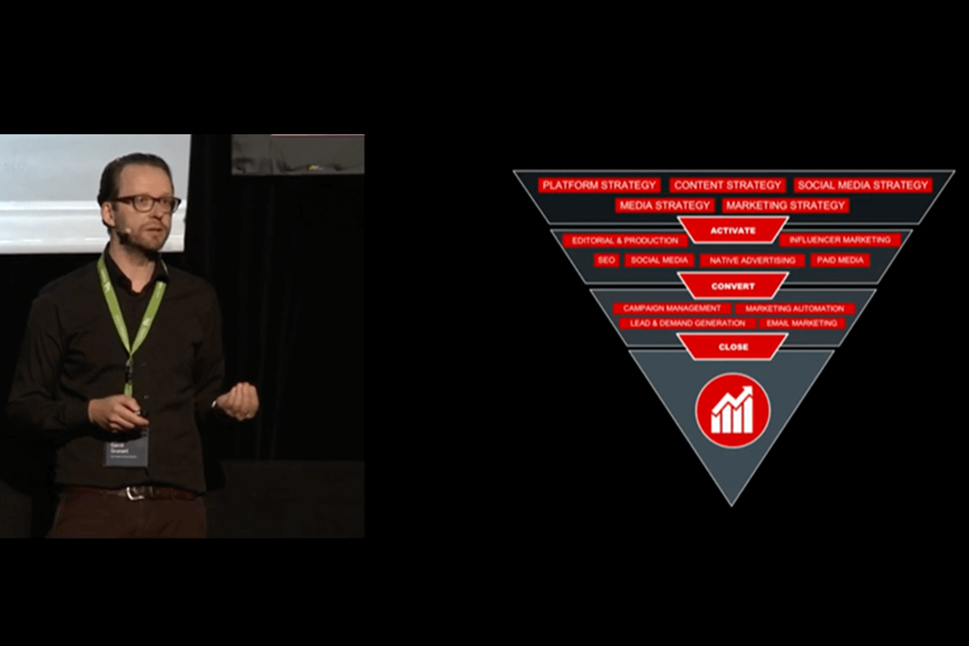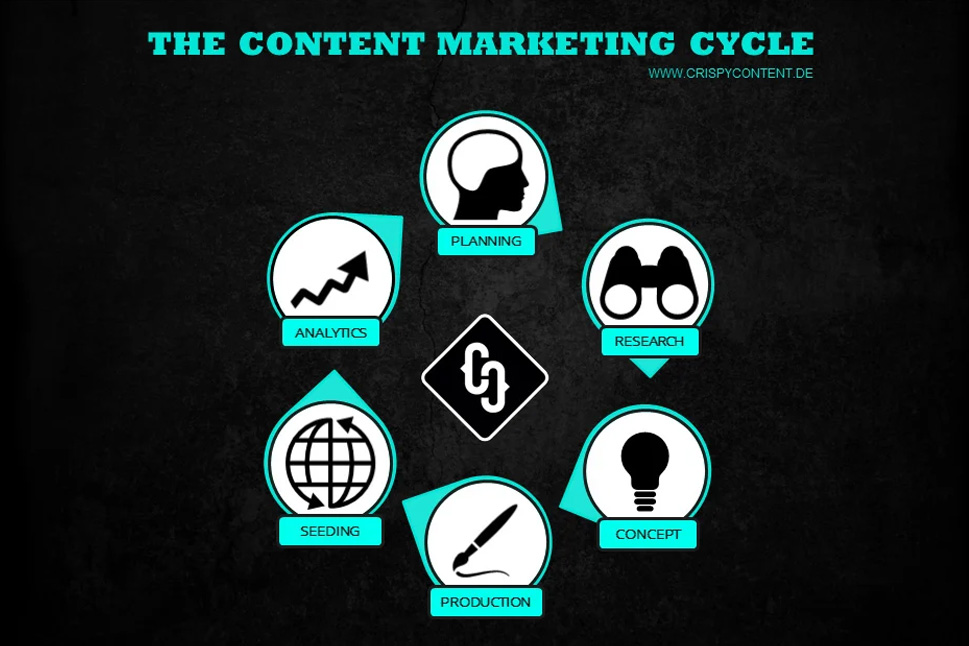Big Data in Content Marketing
Last updated on November 19, 2021 at 11:31 AM.Internet giants like Google have always relied on user data to drive their online business. For smaller online retailers, too, the collection and analysis of data is becoming increasingly important and lucrative. However, complex data sets and massive data volumes mean that new processes are required to enable companies to use data successfully in marketing campaigns. Here, you can learn why big data is so important to your marketing activities, what opportunities it offers, and how your company can best process user-generated data masses.

BIG DATA MARKETING: CURBING THE FLOOD OF DATA
As people wander through the online landscape, they generate a huge amount of useful data. This data can be used to determine the needs, preferences, and buying behaviour of each individual.
Only those companies who analyse the resulting data masses efficiently by means of marketing analytics will be able to familiarise themselves with their potential customers in detail. Using the insights gained from analytics, you can develop content marketing campaigns that address prospective customers as individuals and convert them into paying customers. Data management platforms (DMPs) from providers such as Oracle can help.
Where the data comes from is not important. Whether tweets, text fields, or more complex web content – the corresponding DMPs cover all possible channels. Cloud providers bundle all user and customer data in a software platform, thereby avoiding fragmentation and data silos. Contextual metadata is collected in addition to the actual data and can be assigned to products and users. For social media posts, in particular, this is a huge advantage.
DATA MANAGEMENT PLATFORM
The key to your success in big data marketing is a data management platform that collects and processes verifiable data from the entire customer journey by means of cloud computing, thereby making this data usable. The most important suppliers of data to DMPs are cookies, which store data about the websites visited by users. From the mass of cookie information, data management platforms filter the relevant content and deliver exactly the data that your marketing team needs to create successful advertising campaigns.
During this process, DMPs help you to scale, compartmentalise, and better understand your target group. Target group data can be divided up precisely on the basis of a number of different user attributes (job, income, position in the company, etc.), duration of website visits, and other behaviours. This enables you to recognise trends at an early stage and realign your marketing in a timely fashion.
The DMP collates your brand-specific first-party data (CRM data, emails, web analyses) with hundreds of third-party data sources to enable you to respond to customers’ online behaviour with tailored measures at any time. Depending on your marketing automation environment, there are likely already billions of bits of data available for you to use – and the stockpile of data just keeps on growing.
This is how you approach potential customers at the right point in time and in a targeted, cross-channel and personalised manner, increasing the efficiency and the reach of your activities and optimising your cross-channel marketing. At the same time, big data marketing minimises the risk of scatter loss.
OPTIMISE THE COOPERATION OF MARKETING AND SALES TEAMS
It’s in lead management, in particular, that big data plays a central role – and there’s nowhere that this is more evident than in the possibilities offered by data-based lead scoring. By using the data to evaluate potential customer and sales opportunities, you also have the opportunity to automate your entire lead nurturing process and forward only the most interesting leads to your sales team.
Your company’s sales department can ascertain when, how, and with which content it should address potential customers, e.g. with tools such as emails, social media posts, and telephone calls. What’s more, the numerous analytical tools will show you which measures are successful and which you can safely do without.
In any case, a sales pipeline based on data collections is more efficient than any deal based on the seller's gut feeling. Measurable data takes into account a significantly greater number of factors and enables you to rapidly compare the success of sales activities on the cloud platform with the success of previous procedures.
THE FUTURE OF DATA IS BECOMING EVER MORE COMPLEX
As we’ve seen: without big data, marketing is nothing. In fact, the exploitation of enormous amounts of digital data for marketing is a comparatively recent phenomenon. Data technologies are currently developing at a super-fast rate. Things that are state-of-the-art today may become obsolete within a few years. In addition, market segments such as the Internet of Things (networked objects) are set to make flows of data yet more complex in the future.
Therefore, it is worthwhile for companies to closely monitor the development of big data marketing and to quickly react to changes before the competition leaves them behind. However, one thing remains constant in marketing despite ever more complex technologies and automation functions: your content is the most important success factor. Without compelling content, even the most sophisticated big data strategy is bound to fail.
 Gerrit Grunert
Gerrit Grunert
Gerrit Grunert is the founder and CEO of Crispy Content®. In 2019, he published his book "Methodical Content Marketing" published by Springer Gabler, as well as the series of online courses "Making Content." In his free time, Gerrit is a passionate guitar collector, likes reading books by Stefan Zweig, and listening to music from the day before yesterday.








.png)











.jpg)

-1.jpg)

-1.jpg)
.jpg)



.jpg)













.jpg)







.jpg)

































.jpg)












































